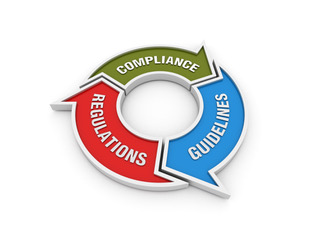Has Canada been slower than other countries in engaging in the global discussion about stopping modern slavery in international supply chains? According to the Canadian authors of a May 2019 report, entitled, The Straight Goods: Canadian Business Insights on Modern Slavery in Supply Chains, the answer is yes.
Modern Slavery In International Supply Chains
International law does not define the term “modern slavery.” The concept is used frequently to include the clearly defined ideas of forced labour (including bonded labour, slavery, and human trafficking) and child labour.
Research demonstrates that the lower levels of global supply chains where natural resource inputs are farmed, mined, fished and processed by workers who are often regarded as unseen and superfluous are especially in danger be caught up in modern slavery.
World Vision Canada’s report entitled, Canada’s Child and Forced Labour Problem identified over $34 billion of Canadian imports annually were at a high risk of having been made by a child or forced labour. More than 1,200 firms operating in Canada were identified as having imported one or more of these high-risk products. Both public and privately held companies and range from small and mid-sized companies to multinational corporations were involved in international supply chains. These enterprises represent almost every sector and supply chain stage.
Legislative Approach Adopted by Other Nations
With the ever-increasing opportunities and complexity associated with international trade, no supply chain tier is immune to the risk of being caught up in the web of modern slavery. However, is there also a business case for Canadian firms to support legislation that would address the issue?
The first example of reporting legislation is the Californian Transparency and Supply Chains Act of 2010, followed by the UK Modern Slavery Act 2015 supply chains clause and, more recently, Australia’s Modern Slavery Act 2018. Firms that do business in each jurisdiction (and also meet a specific financial threshold) are required to publicly report on their efforts to address modern slavery issues in their global supply chains. However, each jurisdiction’s legislation has a different definition of modern slavery, reporting, and frequency of reporting, requirements. Nevertheless, a consistent international approach is based on the premise that increased transparency and reporting will lead to greater accountability.
Mandatory human rights due diligence legislation such as France’s 2017 Corporate Duty of Vigilance Law, in addition to requiring public reporting, creates an obligation for very large companies based in the country to proactively conduct due diligence on the full range of human rights issues in their operations and supply chains. The legislation also provides for potential civil liability, if it can be demonstrated that a firm’s failure to adequately comply with the law caused harm to a third party.
Canada’s Response to Modern Slavery in International Supply Chains
In October of 2018, the Canadian House of Commons Standing Committee on Foreign Affairs released a report entitled A Call to Action: Ending the Use of All Forms of Child Labour in Supply Chains. The subcommittee collected evidence from the private sector, government officials, non-governmental organizations, and labour representatives. The report’s sixth recommendation called for the federal government to develop legislative and policy initiatives to prompt firms to eliminate the use of modern slavery in their supply chains.
The Honourable John McKay P.C., M.P. introduced Private Member’s Bill C-423, or the Modern Slavery Bill, in Parliament on December 13, 2018. The legislation’s purpose is to implement Canada’s international commitment to confirm supply chain transparency and contribute to the fight against modern slavery. The Act requires companies that have assets over $20 million and revenue over $40 million to ensure that their supply chains are transparent and free of goods produced by slavery if they wish to do business in Canada.
The complete Stopping Supply Chain Slavery in Canada article by Darryl Anderson appears in the September 2019 issue of BC Shipping News.

